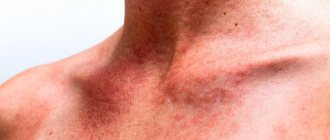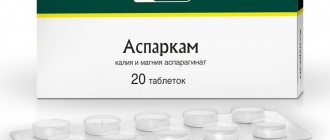Photo source pikisuperstar/freepik
Infections and diseases have been known to mankind since ancient times, but for a very long time it was not known where they came from, how to treat them and avoid them.
Only in the 19th century did they begin to fight infections thanks to vaccination. And an infectious disease specialist is the one who carries out the appropriate procedures for effective treatment.
The fight against infectious diseases has never stopped, which is why infectious disease doctors are in great demand in both medicine and science.
Infectious disease specialist - who is he?
An infectious disease specialist is a medical professional who diagnoses and treats infectious diseases. Everything an infectious disease specialist does involves studying their nature and conducting research to identify new treatment methods.
The professional activity of a specialist is based on the research of microbiologists and epidemiologists. Therefore, he must carefully monitor all scientific discoveries from these related specialists.
Microbes harmful to humans constantly mutate, acquiring new forms. They have their own negative impact on the body and penetrate it differently.
There are five groups:
- intestinal infections;
- respiratory tract infections;
- transmissible blood infections;
- non-transmissible blood infections;
- infections of the outer integument.
This is a generalized classification, since not all infectious diseases and their causative agents are currently represented and identified. What infectious disease doctors do can be divided into narrower specializations, but they generally specialize in serious diseases that can cause an epidemic.
Photo source jcomp/freepik
Diagnosis and symptoms of infectious diseases
The main tests that must be taken during examination and treatment by an infectious disease specialist include:
- cultures and smears for flora (bacterioscopy and bacteriology);
- general blood analysis;
- coagulogram;
- blood chemistry;
- markers of viral hepatitis;
- PRC diagnostics;
- serological diagnostics, in which specific antibodies are determined;
- determination of markers of inflammation and sepsis.
Diagnostic methods may vary depending on the type of infectious disease.
To diagnose changes in the condition of internal organs, the following are carried out:
- electrocardiography;
- sigmoidoscopy;
- ultrasonography;
- fibrocolonoscopy;
- liver scan;
- X-ray examination;
- FGDS (fibrogastroduodenoscopy);
- MRI (magnetic resonance imaging);
- CT (computed tomography).
That is why, if you feel at least one or more signs of serious illness, you need to visit an infectious disease specialist. These symptoms include:
- regular, often recurring, very severe headaches;
- fever;
- insomnia or increased sleepiness;
- pustules and aphthae on mucous membranes of any location;
- fatigue and chronic fatigue;
- pain, heaviness and aching of joints or muscles;
- all kinds of rashes;
- inflammation of the lymph nodes (enlargement);
- swelling, redness and itching of the skin;
- all kinds of dysfunctions of the gastrointestinal tract - diarrhea, constipation, vomiting, nausea;
- prolonged catarrhal manifestations.
When visiting regions with an unfavorable epidemiological situation for any infectious diseases, you should also contact an infectious disease specialist.
Anti-vaccination - what is it?
Anti-vaccination is a social movement that questions immunization (vaccinations), considering it a dangerous delusion.
Infectious disease specialists do everything that can preserve and strengthen the human immune system . Despite this, there are also supporters of refusing vaccinations. This movement arose after the advent of the first smallpox vaccine and has influenced society with varying degrees of success.
Proponents of such views argue that vaccinations are dangerous and unnecessary. Periodically, this leads to local outbreaks of infectious diseases , since an unvaccinated person is a potential carrier of infection.
When should I take my child to an infectious disease specialist?
The growth of infectious diseases is only increasing every year, and this problem concerns not only the adult population, but also children. In addition, their immune system is quite immature, so even a seemingly insignificant infectious disease can lead to serious health problems. If the acute phase remains untreated, the disease can become chronic and ruin the child’s quality of life. Often, it is an unfavorable environmental situation that causes the development of an immunodeficiency state.
You should take your children to see an infectious disease specialist if the following problems arise:
- Any rash on the skin or mucous membranes of the child;
- Symptoms of body intoxication - muscle aches, headaches and eye pains;
- Diarrhea;
- Blood in the stool;
- Vomiting or nausea;
- Jaundice discoloration of the skin;
- Body temperature hovering around 38 °C. (
What does an infectious disease doctor do:
- diagnosis and selection of necessary treatment;
- accompaniment of the patient, tracking the recovery process;
- interaction with doctors from other areas;
- organization of work of junior and mid-level medical personnel;
- work with medical documentation.
In order to competently fulfill all presented obligations, an infectious disease specialist must have the following knowledge:
- methods for the full cycle of patient management (from diagnosis to rehabilitation);
- understanding of the principles of diagnostic and treatment procedures, methods of their implementation;
- basics of pharmacy.
Sexual infections
The method of transmission of infection is anal, oral, vaginal sex without personal protective equipment. As a result, they develop:
- syphilis;
- gonorrhea;
- chlamydia;
- AIDS.
These diseases are dangerous because over a long period they may not produce a pronounced symptomatic picture, gradually suppressing the immune system and provoking the development of complications. People who have an active sex life with different, untested partners are recommended to visit a doctor for preventive purposes at least 2 times a year.
What does an infectious disease doctor treat?
This specialist is able to identify, cure or stop the progression of several hundred diseases.
The 7 most common infections that increase global mortality:
- Pneumonia.
- Acute bronchitis.
- AIDS/HIV.
- Dysentery, typhoid fever.
- Tuberculosis.
- Measles.
- Whooping cough.
Over the past 100 years, many vaccines have been created that have successfully treated most infectious diseases. Until about 1920, humanity did not have enough knowledge and the necessary level of development to prevent epidemics.
This led to pandemics - global epidemics.
Universal vaccination has made it possible to completely eliminate some infections and extend human life.
What diseases does it treat?
Infectious diseases that fall under the purview of an infectious disease specialist are divided into 4 categories:
- Zoonoses. Such infections develop after certain microbes enter a person from the body of animals. The most common of them include rabies, anthrax, malaria, botulism, plague, etc.
- Anthroponoses. A person can only become infected with such diseases from other people, since pathogens live only within the human body. These include rotavirus, typhoid fever, cholera, polio, etc.
- Sapronoses. Microorganisms that cause sapronoses live in the soil, natural reservoirs and other inanimate natural objects.
- Parasitic infections. An extensive group of diseases caused by worms, roundworms and other protozoa. In our latitudes, ascaridiosis, giardiasis, toxocariasis, etc. occur.
In most cases, infectious disease specialists undergo in-depth specialization, according to which they are divided into the following specialized areas:
- Immunologist-infectious disease specialist. He is in charge of identifying and treating chronic infectious pathologies that can significantly worsen the patient’s immunity. This picture is observed in asthmatics, patients with mononucleosis and certain sexually transmitted diseases.
- Virologist. Qualifies for viral diseases. Since the life activity of viruses and the principles of their treatment are somewhat different from bacteria and protozoa, working with them requires special skills and knowledge that a virologist has. Viral pathologies include HIV, cytomegaly, influenza, rubella, hepatitis and viral pneumonia, measles and many others.
- Parasitologist. Its specificity is represented by parasitic pathologies that can cause damage to various types of tissue and organs, deficiency of nutrients in the body and other manifestations. Most often, parasitologists have to deal with ascariasis, scabies, echinococcosis, helminthiasis, encephalitis and other diseases.
Infectious disease specialist's place of work
Representatives of the profession can work in the following institutions:
- clinics and in-patient departments of infectious diseases hospitals;
- specialized offices at the clinic;
- research centers and institutes.
Photo source pch.vector/freepik
How does an appointment with a specialist take place?
At the first consultation, the infectious disease specialist listens to the patient’s main complaints, studies the nature, frequency and intensity of symptoms. A thorough medical history is collected and studied. The doctor will be concerned about such data about the patient as the presence of bad habits, gastronomic preferences, cases of close contact with sick people, and recent trips to other countries.
After the interview, a physiological examination of the patient is carried out. Immediately after the consultation, the doctor will refer you for laboratory tests, so you need to prepare for a visit to an infectious disease specialist. To do this, you will need to carry out thorough intimate hygiene, not using scented products, not having breakfast, not drinking anything except plain water, and not smoking. The evening before your doctor's appointment, you are prohibited from drinking alcoholic beverages.
Where to study to become an infectious disease doctor
Everything an infectious disease specialist does involves interacting with dangerous diseases. This can happen when interacting with people or when conducting scientific experiments. The work requires qualified specialists, so obtaining a profession requires a higher education . You can enter a medical university after 11th grade, and after receiving basic education you must continue your residency training in the field of “Infectious diseases” for two years.
If a person is not satisfied with the fact that an infectious disease doctor treats people by directly interacting with them, another option is possible to obtain the necessary education. You can enroll in a faculty related to microbiology or epidemiology. And after that, enroll in specialized retraining courses.
Non-transmissible blood infections
The pathogen enters the circulatory system through the use of a single injection needle or tattooing if a healthy person has been transfused with infected blood. Such diseases include:
- hepatitis;
- AIDS.
These diseases are very severe, occur in a chronic stage with constant relapses, and are incurable. Therapy is aimed at maintaining life and reducing the incidence of exacerbation of the symptomatic picture.
Treatment of an infectious disease
And finally, after finding out what an infectious disease specialist treats and how he makes a diagnosis, let’s find out how the disease itself is treated. Actually, here you need to understand that the process of healing from an infectious disease is the fight against its specific pathogens, that is, an infection or a virus. Most often, the patient requires urgent assistance in the form of symptomatic treatment in the form of oral administration of dehydration salts or intravenous administration of isotonic solutions. Such procedures are prescribed by an infectious disease specialist to combat dehydration, vomiting and nausea. The doctor may also prescribe gastric lavage to the patient and antitoxic therapy, which will help remove toxins from the body.
In addition, based on the results of diagnostics and tests, the infectious disease specialist may prescribe the use of anthelmintic drugs or antiviral, antifungal or antibacterial therapy, after which the causative agents of the disease will be completely destroyed. Well, if the test results indicate that the patient can infect others, then the infectious disease specialist places him in quarantine.
Post-exposure prophylaxis (PEP or post-exposure prophylaxis, PeP) is the only way to prevent HIV infection after exposures of varying degrees of risk. As a rule, PEP involves taking antiretroviral drugs, which are used to treat HIV infection, in the first 2-3 days (up to 72 hours) from the moment of risky contact, since this is the time the virus needs to begin active reproduction in the human body. Taking PEP is most effective in the first 24-48 hours.
When is PEP necessary?
Anti-infection medications are prescribed for exposure to infected blood or unprotected sex with an HIV-positive person.
| Type of contact (without using a condom with an HIV-positive person who is not on treatment) | Risk of infection,% |
| Sharing needles and syringes when injecting psychoactive substances (drugs) | 0,8 |
| Needle prick (during medical procedures) | 0,3 |
| Blood contact with the mucous membrane (eyes, mouth) | 0,1 |
| Vaginal intercourse (risk for men) | 0,01-0,15 |
| Vaginal intercourse (risk for women) | 0,01-0,15 |
| Anal intercourse (active partner) | 0,065 |
| Anal sexual contact (passive partner) | 0,5 |
| Oral sex (active partner) | 0,005 |
| Oral sexual contact (passive partner) | 0,01 |
Very high risk of infection
* with transfusion of HIV-infected blood – 92-95%
* a child from a mother who does not take antiretroviral drugs (ART) during childbirth – 15-30%
Almost zero risk of contracting HIV
* from an HIV-positive woman to a child, if she is taking ART and there is no viral load in the blood
No risk of HIV infection
* from a sexual partner taking medications and having an undetectable viral load.
* from an HIV-positive person in everyday life (using shared dishes, the same towel, etc.)
* for bites of blood-sucking insects (mosquitoes, etc.)
PEP reduces the risk of infection by 80-89%. The earlier you start taking medications, the lower the risk of infection.
An infectious disease specialist or a trained specialist in a medical clinic can assess the risk of infection.
PEP is prescribed by an infectious disease doctor, usually a regimen of three/four drugs from the group of antiretroviral drugs, which must be taken for 4 weeks at a strictly defined time of day.
Official recommendations from the World Health Organization (WHO) and the European HIV Clinical Society (EACS) provide the following regimens for PEP:
1. Tenofovir+emtricitabine+raltegravir
2. Tenofovir+lamivudine+lopinavir/ritonavir
3. Tenofovir+emtricitabine+darunavir/ritonavir
4. Zidovudine/lamivudine+lopinavir/ritonavir, etc.
Medicines can cause a number of side effects and have contraindications for use, so it is not recommended to take them without a doctor’s prescription.
If you think that you may have been infected with HIV, you must:
1. Contact a clinic that specializes in the treatment and prevention of HIV infection.
2. If you are a medical worker and were injured while performing medical procedures at work, when contacting the AIDS Center, you must provide an emergency report signed by the head of the institution and the seal of the organization.
3. Together with your doctor, assess your personal risk of infection.
4. Take an HIV test (to make sure that you are not infected at the time of the examination).
5. Obtain a doctor’s prescription for PEP medications with explanations of the dosage regimen and possible side effects.
6. Free drugs are given only to medical workers injured at work and only to schemes approved in regulatory documents.
7. If you purchase medications for PEP at your own expense, find a pharmacy that will have the drugs in stock (the ID-Clinic pharmacy always has these drugs in stock)
8. You will be advised to get tested for HIV 1, 3 and 6 months after risk exposure.
Author: Korneeva Tatyana Sergeevna
Infections during pregnancy
In addition to the fact that an infectious disease specialist in Pyatigorsk treats patients suffering from various viral diseases, he also deals with ailments that affect some pregnant girls. As you know, any viral infection poses a threat to the unborn child. Consequently, their appearance depends on the state of the immune system, as well as on lifestyle, the presence of stressful situations and nutrition. During pregnancy, the following ailments are considered dangerous for the mother and her child:
- rubella;
- chickenpox;
- chlamydia;
- herpes;
- toxoplasmosis;
- HIV infection;
- hepatitis B and many others.
That is why women suffering from one or another illness are often referred by a gynecologist to a specialist in the field of infectology.
Preparing for the examination
In order for the doctor to familiarize himself with previous illnesses and the opinions of other specialists, take with you a medical outpatient card from the clinic at your place of residence. This will help the doctor make a diagnosis and may save you from undergoing additional tests.
During the consultation, answer honestly and in detail, do not be ashamed of your illness. The more information the doctor receives, the more accurate the preliminary diagnosis will be. It will become clearer to the doctor in which direction to work, so the examination will take less time.
12 hours before the examination, you should not eat, smoke, drink alcohol, or take medications that may affect the results. The doctor tells you more about the recommendations at the first appointment.











